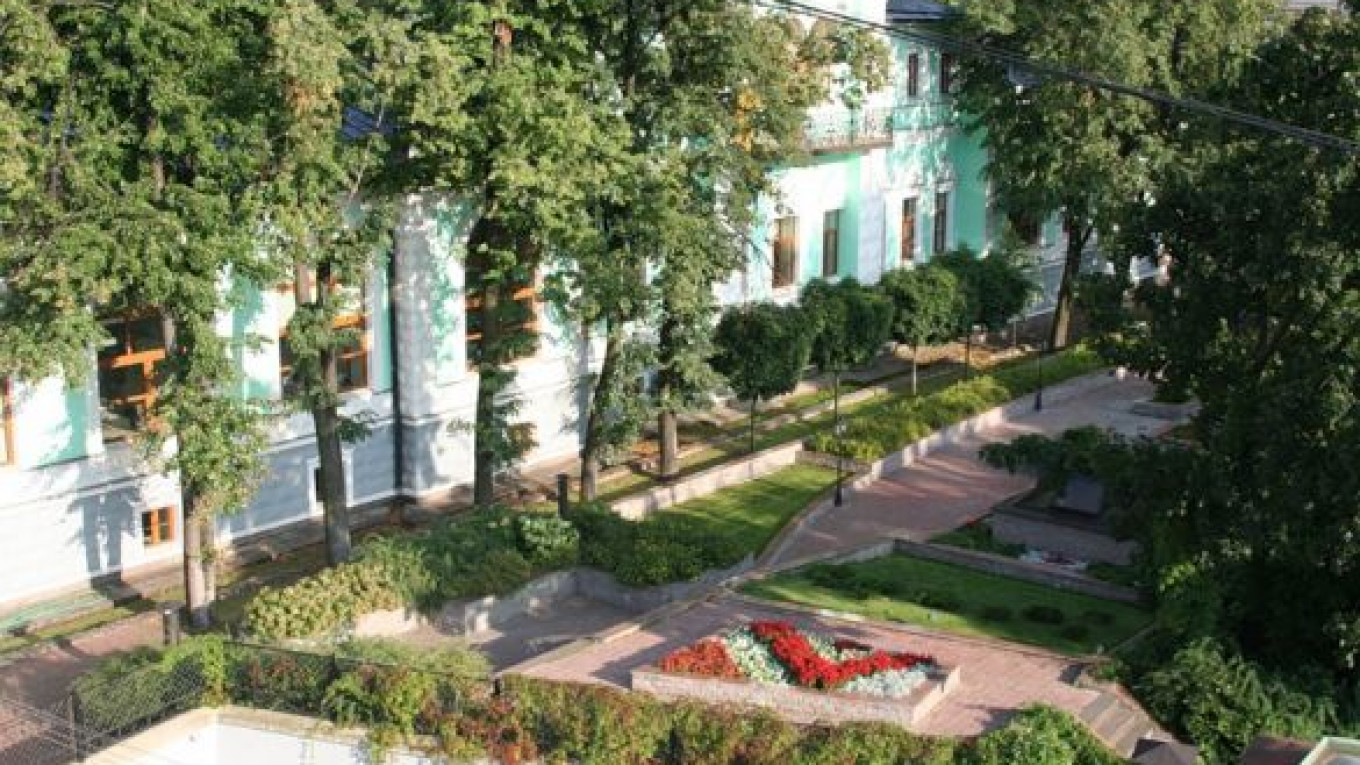A public garden in downtown Moscow that was closed off and guarded for the last six years has partially reopened after a campaign by local residents.
Morozovsky Sad is half a hectare of gardens originally laid out as part of the like-named 18th-century mansion on Bolshoi Tryokhsvyatitelsky Pereulok, near the Kitai-Gorod metro station.
The area was closed off in 2005, with security guards put in place to keep people out. But this year it has reopened several times after campaigners wrote to the prosecutor’s office to enquire about the legality of the refusal to give access to the gardens.
“We don’t know why it was seized,” said Yevgeny Budnik, who started the campaign to reopen the garden. “But for owners or renters of this building, having a private garden in the center of Moscow is as cool as having a yacht or a Ferrari.”
Locals could visit the garden in Soviet times and in the 1990s when the mansion housed a kindergarten. Things began to change in 2001 when the city gave the building to the company Interstroi in exchange for its financing the renovation of another kindergarten in the area.
An underground garage was built under the mansion. Then in 2005, all access to the garden was stopped, Budnik said. Walls were also built blocking views of the garden from outside.
“All documents we have been able to access show that the Morozovsky garden is legally for uninhibited use,” he said.
Nobody could be reached for comment at Interstroi. The company has previously said the garden was closed off to prevent hooliganism.
Last week, the prosecutor’s office said the transfer of the property was illegal. Two city government decrees from 2004 and 2007 defined the gardens as an area of unrestricted public use.
Few would argue that Moscow needs more green areas, especially in its overcrowded downtown.
“Once the center of Moscow was a very comfortable place for living,” said Sergei Trubkin, another member of the campaign. “There were trees on Tverskaya, green yards outside homes, and so on.”
“But more recently and particularly under [former Mayor Yury] Luzhkov, it stopped being livable,” he said. “They began pushing residents out of the center to make space for offices and restaurants. This is why what has happened here resonates so much. We need space where kids can play.”
Despite initial success, access to the garden remains limited. A recent visit was met with a locked door.
“There were big chestnut trees there, beautiful trees,” said Svetlana, an elderly resident who remembers strolling in the garden when she was a young girl. “But it’s been closed too long. I can’t believe it will open again.”
Budnik is hopeful that one day the garden will be open all the time.
“I think our campaign will be successful because two important things happened in the period before the start of our campaign — Moscow’s mayor and the head of the Basmanny district, where the garden is located, both changed,” he said. “This means that the civil servants who allowed the seizure of this area and who would prevent us from obtaining justice are gone.”
A Message from The Moscow Times:
Dear readers,
We are facing unprecedented challenges. Russia's Prosecutor General's Office has designated The Moscow Times as an "undesirable" organization, criminalizing our work and putting our staff at risk of prosecution. This follows our earlier unjust labeling as a "foreign agent."
These actions are direct attempts to silence independent journalism in Russia. The authorities claim our work "discredits the decisions of the Russian leadership." We see things differently: we strive to provide accurate, unbiased reporting on Russia.
We, the journalists of The Moscow Times, refuse to be silenced. But to continue our work, we need your help.
Your support, no matter how small, makes a world of difference. If you can, please support us monthly starting from just $2. It's quick to set up, and every contribution makes a significant impact.
By supporting The Moscow Times, you're defending open, independent journalism in the face of repression. Thank you for standing with us.
Remind me later.






